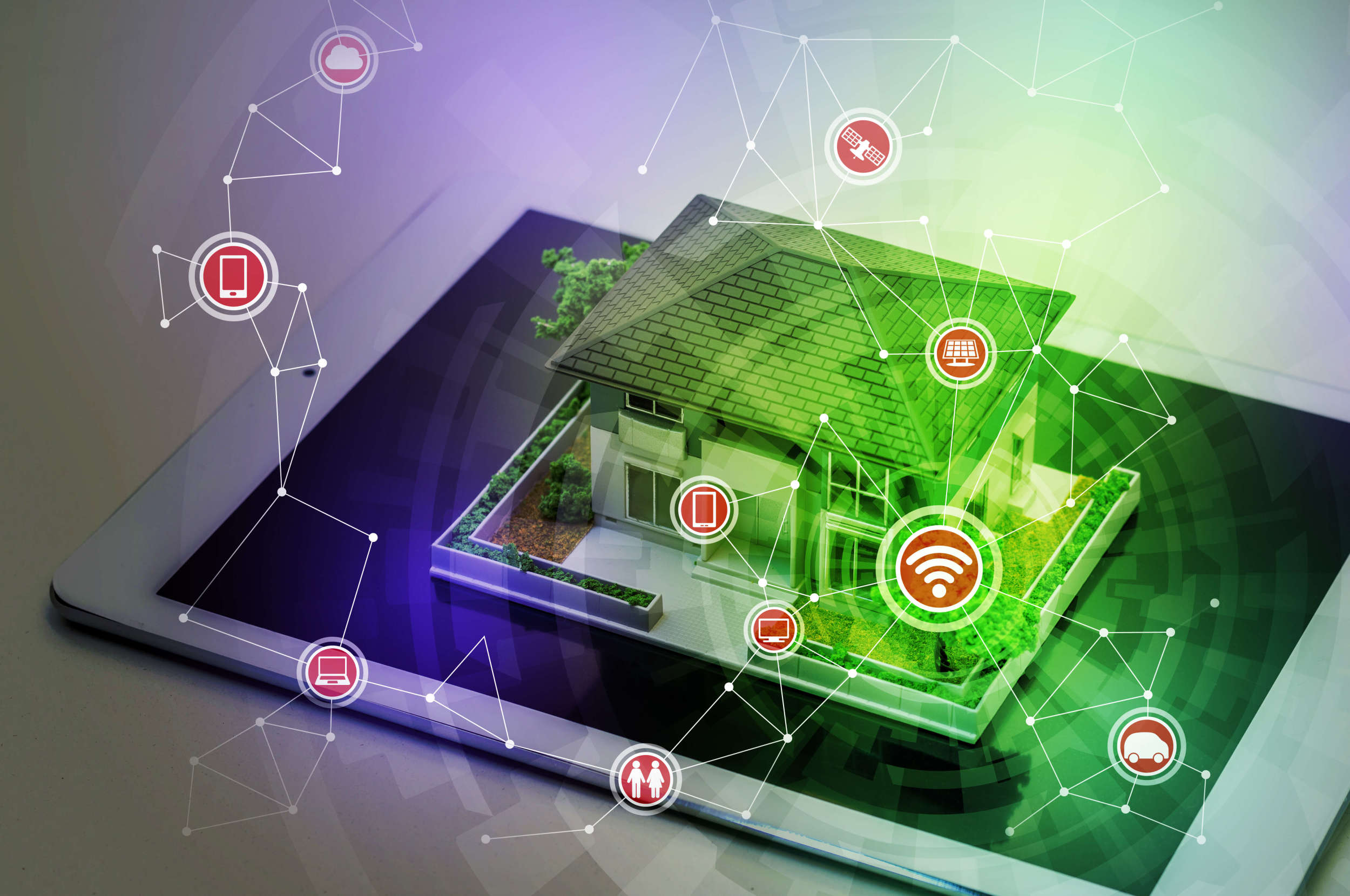YEAR IN REVIEW
2018 was a pivotal year for Cognitive Systems. Our innovative, patented technology, Aura WiFi Motion™, received numerous awards from Juniper Research, WiFi Now and more. We are excited to work with our new customer, Stanley Black & Decker, who shares our forward-thinking mindset. As we look toward 2019, we are positioned to continue breaking new ground in the smart home industry – one of the fastest growing spaces in technology today.
THE FUTURE OF THE “SMART” HOME
Despite the industry’s rapid growth, we’re expecting a slow and steady crawl toward a true smart home. The industry has come a long way, but companies in this sector still have a handful of key objectives to reach in order to achieve a fully connected home.
The current smart home ecosystem consists of a variety of isolated devices. They do not work together to provide full context, and don’t create a true smart home environment. Users still need to provide the intelligence to inform device activity. The way to achieve a truly smart, cognitive home is through a consolidated ecosystem that enables all smart devices to work together rather than in an individual capacity.
LOOKING AHEAD TO 2019
In 2019, we will likely see the continued rise of mesh networking, which can effectively connect devices, enabling intelligent action independent of constant management by users. The mix of RF sensing technology and mesh networking schemes will amplify the value of network hardware. The resulting infrastructure and sensory feedback can then facilitate a fully connected, smart home.
2019 will also slowly begin to address privacy concerns. Following the massive data breaches of 2018, we will start to see more data protection regulation introduced. These improvements are not going to happen rapidly; in fact, we may first see significantly more repercussions for consumers whose personal information lies with companies that are not equipped to handle this data with appropriate sensitivity. Consumers are frustrated and highly concerned about their personal data being handled recklessly. They will begin demanding increased regulation by governments and companies moving forward.
Finally, DIY functionality will become a priority for tech companies offering smart devices. Difficult set up is a barrier of purchase for many consumers, who simply will not bother if a product is too challenging to integrate into their homes. IoT devices will prioritize simple set up, encouraging adoption amongst skeptical consumers who may not be particularly tech-savvy.
WANT MORE TECH PREDICTIONS?
Read Forbes 120 AI Predictions For 2019, featuring a quote from our own Nebu Mathai:
“We are still far from having a bonafide ‘smart home’ and the primary roadblock is the lack of the essential link between sensing and action. Currently, we have a variety of technologies that offer a compelling vision of the future, but that vision is impeded by the fact that the devices are isolated, lacking context, and are thus unable to act autonomously: the consumer must still supply the intelligence for the ‘smart home.’ The mating of RF sensing technology with mesh and other networking schemes will amplify the value of network hardware, enabling them to provide powerful communications infrastructure and sensory feedback—the necessary convergence of control and communications needed to create cognitive systems. We will see this convergence entering the market in 2019, led by forward-thinking tech players who will build out this visionary ecosystem to satisfy the demands of consumers who want to see a Jetson—esqe future, now.”
—Nebu John Mathai, EVP Product Engineering, Cognitive Systems Corp.

